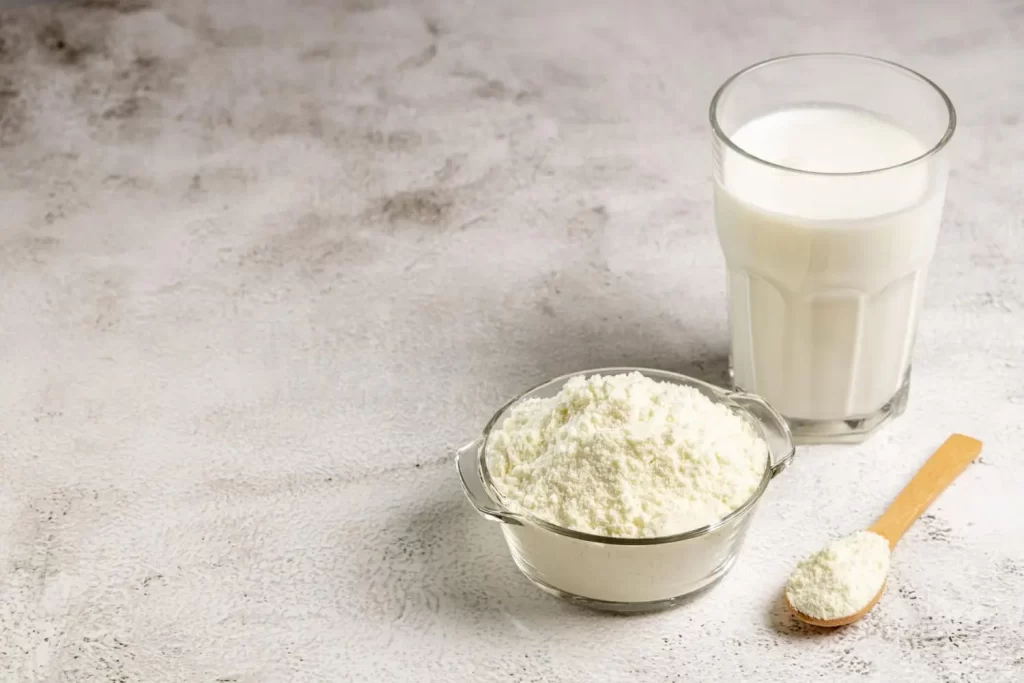Powdered milk is one type of milk available on the market and is widely consumed by the public. Many people choose powdered milk for its ease of storage and flexibility in use. What are the advantages and disadvantages of powdered milk?
What Is Powdered Milk?
Powdered milk is a liquid milk which has been processed through heating, evaporation, and drying to remove its water content, leaving it in powder form.
This process allows powdered milk to be stored at room temperature for a longer time compared to fresh milk. Typically, powdered milk is fortified with various nutrients to maintain its nutritional value.
Characteristics of Powdered Milk
One characteristic of powdered milk is its long shelf life without needing refrigeration. Powdered milk is usually packaged in airtight cans or bags to maintain its quality. When mixed with water, powdered milk turns back into a fluid milk that can be drunk or used in various food and beverage recipes.
Advantages of Powdered Milk
Here are some advantages of powdered milk compared to other types of milk:
1.Longer Shelf Life
Powdered milk has a longer shelf life than liquid milk due to its very low water content. This allows powdered milk to be stored at room temperature for several months or even years if stored properly.
2. Easy to Store
Powdered milk is easier to store. It can be kept at room temperature, so it doesn’t require refrigeration. The key is to store it in a clean, dry, and airtight place.
3. Easy to Use
Using powdered milk is relatively easy. It can be mixed with water to produce liquid milk. Just be sure to follow the instructions on the packaging for the correct milk-to-water ratio and water temperature. Additionally, some types of powdered milk can be used in various recipes, such as cakes, bread, and beverages.
4. Enriched with Various Nutrients
Powdered milk is usually enriched with nutrients such as protein, calcium, vitamins, and other minerals, providing optimal health benefits.
Disadvantages of Powdered Milk
Powdered milk also has some disadvantages compared to liquid milk. Here are a few:
1. Different Taste
Powdered milk has varying tastes. However, in general, it has a blander taste compared to liquid milk.
Some people may notice a difference in taste between reconstituted powdered milk and fresh milk. The texture and aroma of powdered milk are often considered less fresh than liquid milk.
2. Complex Processing
The drying process used to make powdered milk involves high temperatures, which can lead to the loss or destruction of nutrients. However, powdered milk is usually fortified with various nutrients to maintain its nutritional content.
3. Possibility of Clumping
When mixed with water, powdered milk sometimes does not dissolve completely, leaving clumps of undissolved powder. This can affect the milk’s concentration and its nutritional content. Clumps also make it less pleasant to drink.
Additionally, improper storage can cause powdered milk to clump in its container, which can affect the quality of the milk.
Powdered milk has advantages and disadvantages that should be considered according to individual needs.
Arummi’s Recommendation: Try Arummi Cashew Milk
Arummi cashew milk is a plant-based milk product made from selected cashews. Arummi cashew milk contains various nutrients to support body health.
Additionally, Arummi cashew milk is low in fat and lactose-free! Grab your Arummi cashew milk at the nearest supermarket.









































